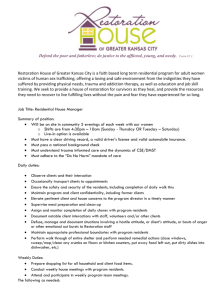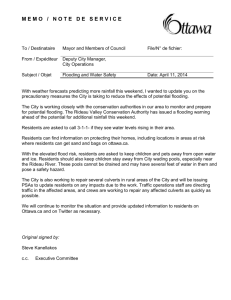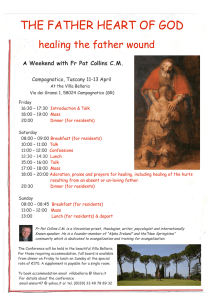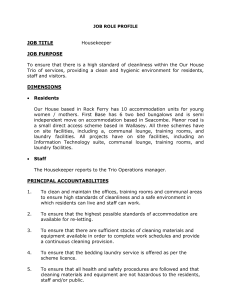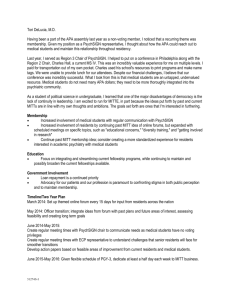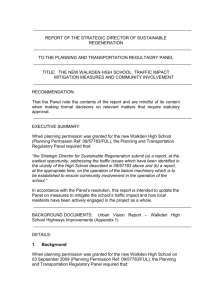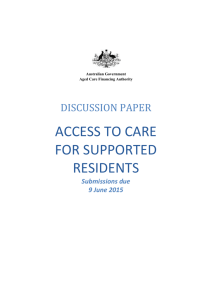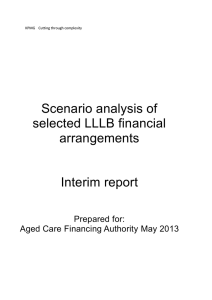Framework and Terms of Reference for the Review of Residential
advertisement
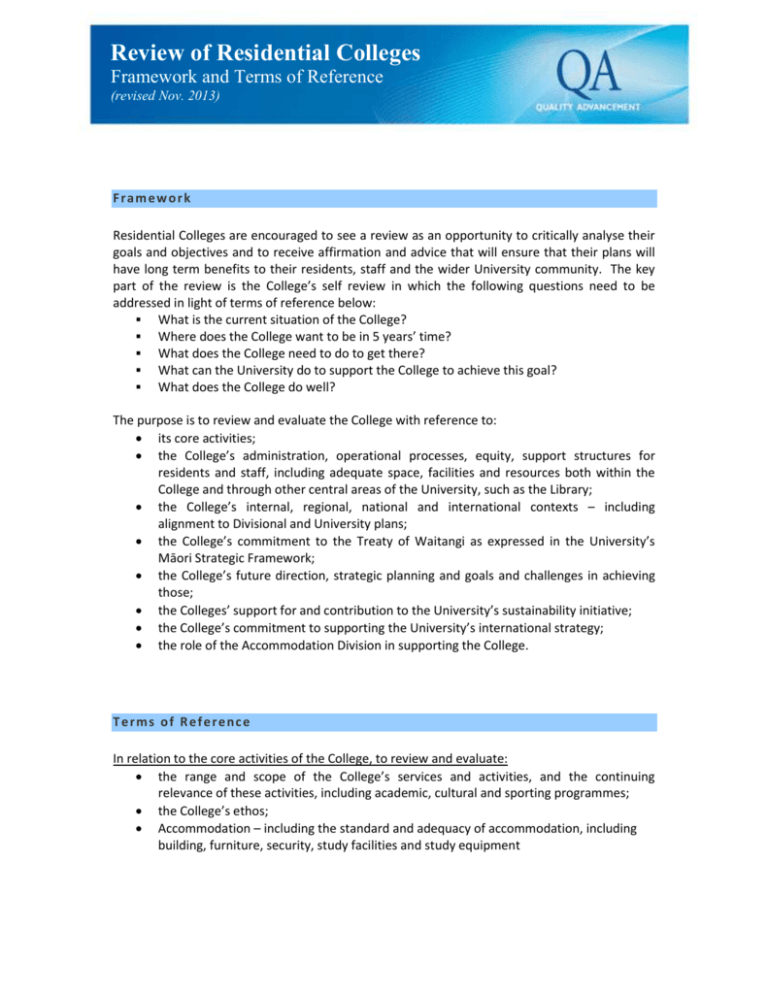
Review of Residential Colleges Framework and Terms of Reference (revised Nov. 2013) Framework Residential Colleges are encouraged to see a review as an opportunity to critically analyse their goals and objectives and to receive affirmation and advice that will ensure that their plans will have long term benefits to their residents, staff and the wider University community. The key part of the review is the College’s self review in which the following questions need to be addressed in light of terms of reference below: What is the current situation of the College? Where does the College want to be in 5 years’ time? What does the College need to do to get there? What can the University do to support the College to achieve this goal? What does the College do well? The purpose is to review and evaluate the College with reference to: its core activities; the College’s administration, operational processes, equity, support structures for residents and staff, including adequate space, facilities and resources both within the College and through other central areas of the University, such as the Library; the College’s internal, regional, national and international contexts – including alignment to Divisional and University plans; the College’s commitment to the Treaty of Waitangi as expressed in the University’s Māori Strategic Framework; the College’s future direction, strategic planning and goals and challenges in achieving those; the Colleges’ support for and contribution to the University’s sustainability initiative; the College’s commitment to supporting the University’s international strategy; the role of the Accommodation Division in supporting the College. T e r ms o f R e f e r e nc e In relation to the core activities of the College, to review and evaluate: the range and scope of the College’s services and activities, and the continuing relevance of these activities, including academic, cultural and sporting programmes; the College’s ethos; Accommodation – including the standard and adequacy of accommodation, including building, furniture, security, study facilities and study equipment Communication – including the provision of information to residents and conference clients; consultation and liaison with residents and incorporating feedback into the College; identifying and addressing problems raised by residents and staff; Pastoral care of residents – including residents with special needs and the welfare of residents from different cultures; processes for addressing resident discipline; Resident Support Staff – including Residential Assistants and Tutors; processes for selection, training, mentoring, management, supervision and performance review of all College staff; the relationship of the College to: Communication and Marketing, Liaison Officers, University Alumni Office, Accommodation staff, International Office, Chaplaincy, Student Services, Library, Student Learning Centre, OUSA, Recreation Services, other Colleges and University Departments, University ITS, schools and conference attendees health and safety matters facilities for residents with special needs the adequacy of Conference facilities the value of the grounds in enhancing the College environment In relation to administration and operational processes, to review and evaluate the standard (quality, appropriateness, effectiveness and efficiency) in the College of: structure and management – including institutional oversight, relationship with the College Advisory Council and its role, committee structure, leadership in regard to developing and maintaining the professional standing and reputation of the College, ensuring employee capability through induction, mentoring, professional development and performance review; monitoring and evaluation – including consultation and liaison with residents, staff, and other members of the University and wider community, incorporating feedback into planning, core activities and operations, identifying and making improvements to the core activities; sustainability – efforts made to enable residents’ to be actively engaged with sustainability as part of their broader University experience; physical and IT resources including the effectiveness of the College’s Repairs and Maintenance planning schedules; Health and Safety; the relationship with the Accommodation Divisional Office. Additional Terms of Reference (if any) While each College Review is expected to consider the features listed above, from time to time it may be appropriate to customise the above Terms of Reference or include additional Terms of Reference to take into account a special feature or features requiring further investigation. These changes or additions must be highlighted in the Review Proposal.




